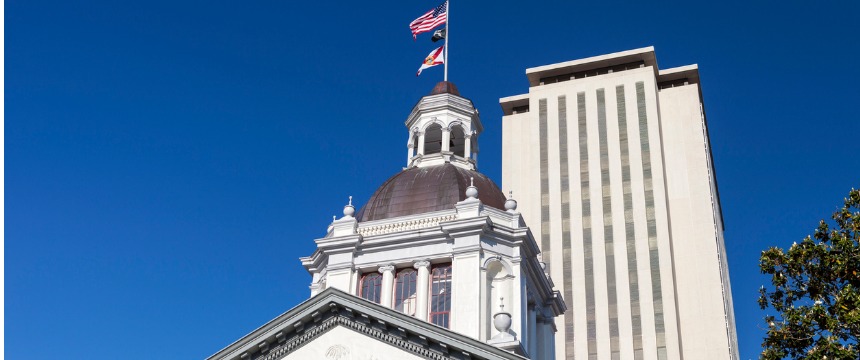COVID-19: Florida Obtains First Medicaid 1135 Waivers Related to COVID-19 — 5 Key Takeaways

On March 13, 2020, the President declared the Novel Coronavirus (COVID-19) outbreak in the U.S. a national emergency. The President’s declaration, coupled with Section 1135 (of the Social Security Act) waivers issued by the Secretary of the Department Health and Human Services (HHS) on the same day, empowered the Centers for Medicare and Medicaid Services (CMS) to waive certain requirements in Medicare, Medicaid, and CHIP under Section 1135 of the Social Security Act. Specifically, as it relates to state Medicaid programs, CMS was given the authority to issues waivers under Section 1135 to states requesting such waivers for the purposes of removing administrative burdens and expanding access to care. The purpose of such waivers is to ensure that sufficient health care items and services are available to meet the needs of beneficiaries and to ensure that health care providers that furnish such items and services in good faith, but are unable to comply with one or more Medicaid requirements as a result of the COVID-19 pandemic, may still be reimbursed for such items and services and exempted from sanctions for such noncompliance, absent any determination of fraud or abuse.
Florida was the first state to request waivers under Section 1135, and on March 16, 2020, it was the first state to have such waivers granted. However, we would expect that Florida Medicaid will provide further guidance on the scope of their implementation of the waivers in the coming days. Unless otherwise specified in the waiver, the waivers and modifications take effect on March 15, with a retroactive effective date of March 1, 2020. The five key takeaways from the waivers are summarized below.
- Waived or Expedited Provider Enrollment: Subject to applicable billing rules and licensure requirements, for Medicaid and CHIP, Florida may reimburse providers enrolled with Medicare or any other state’s Medicaid agency who provide services to Florida Medicaid beneficiaries without needing to enroll with Florida Medicaid. Florida may provide expedited enrollment to out-of-state facilities caring for displaced residents.Florida may temporarily enroll providers not currently enrolled with Medicare or any state Medicaid agency without requiring (1) payment of an application fee; (2) criminal background checks; (3) site visits; and (4) in-state/territory licensure requirements. However, to enroll these providers on an expedited basis Florida must, at a minimum, collect the following: (1) minimum data requirements to file and process claims, including NPI; and (2) Social Security Number, Employer Identification Number, and Taxpayer Identification Number (SSN/EIN/TIN) to ensure the provider holds a valid, unrestricted license and is not on the OIG exclusion list. Also, Florida must refrain from issuing new temporary provisional enrollments after the date the emergency designation is lifted, cease payments to providers who are temporarily enrolled within six months of the date the emergency designation is lifted (unless the provider applies for and is approved for full Medicaid participation), and allows for a retroactive effective date of March 1, 2020 for provisional temporary enrollments.
Florida may also temporarily cease revalidations.
- Prior Authorization Requirements Waived: Florida can waive or modify the prior authorization and medical necessity requirements, currently imposed within its state plan with respect to fee-for-service delivery systems, to permit services provided on or after March 1, 2020, for at least 90 days and up to a maximum of 180 days. Prior authorizations often slow the screening and treatment process, which is of critical importance during this emergency situation.
- Suspension of Pre-Admission Screening and Annual Resident Review Requirements for Nursing Facilities: Florida can waive pre-admission screening and annual resident review (PASRR) Level 1 and Level 2 screening requirement for 30 days for nursing facilities (NF). After 30 days, new admissions with mental illness (MI) or intellectual disability (ID) should receive a Resident Review “as soon as resources become available.” But note, Level 1 and Level 2 screens are not required for residents being transferred between NFs.
- Waiver to Allow Evacuating Facilities to Provide Services in Alternate Settings, Including Unlicensed Facilities: During an emergency evacuation of a facility (including NFs, intermediate care facilities for individuals with intellectual and development disabilities, psychiatric residential treatment facilities, and hospital NFs) to an unlicensed facility, the evacuating facility could be fully reimbursed for services rendered at the unlicensed facility during the evacuation period (if the evacuating facility continues to render services). This is only a temporary arrangement, and after the initial 30 day waiver period, CMS would require the unlicensed facility to either seek licensure or the evacuating facility would need to seek new placement for the beneficiaries. The evacuating facility would determine how to reimburse the unlicensed facility.
- Extension of Appeals Deadlines and Fair Hearing Requests: Florida could temporarily delay scheduling Medicaid Fair Hearings and issuing Fair Hearing Decisions during the Emergency Period. Also, it can modify the timeframe for managed care entities to resolve appeals and for enrollees to request free hearings to zero days and extend the length of time that beneficiaries have to file appeals to 90 or 120 days depending on the appeal type.
Florida Medicaid, or ACCESS Florida, is a state and federal partnership that provides health care coverage to certain categories of Floridians, including low income individuals and their families. Other states could apply for similar section 1135 waivers.
Health care providers should take additional steps now to mitigate the risk of suffering negative impacts from the coronavirus. Foley will continue to keep you apprised of relevant coronavirus-related developments. Be sure to check Foley’s Coronavirus Resource Center for insights and resources to support your business during this challenging time.




